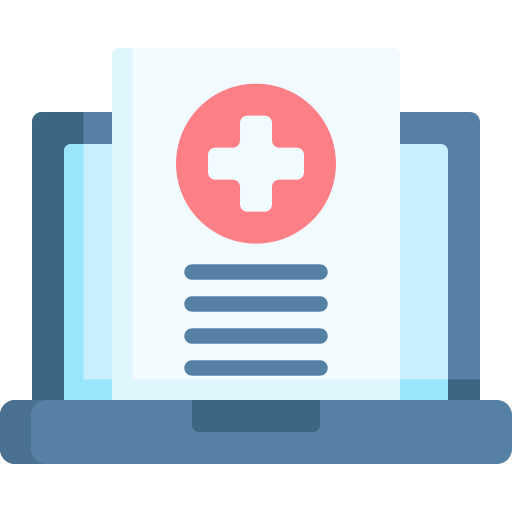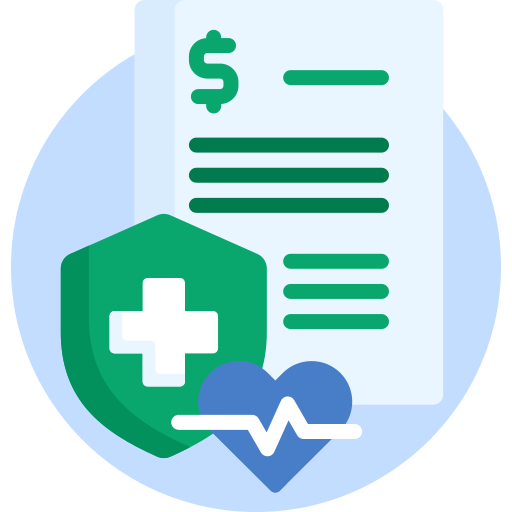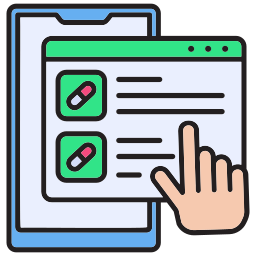CDS Hooks are changing how clinical decision support (CDS) works inside EHRs, bringing real-time, context-aware recommendations directly into provider workflows. Instead of forcing clinicians to search for critical insights manually, CDS Hooks delivers instant guidance at the point of care, ensuring faster, more informed decisions without disrupting workflow.
In healthcare, timing is everything—delayed or inaccessible information can mean misdiagnoses, treatment delays, or missed risk factors. CDS Hooks enables smarter clinical workflows by embedding automated alerts, risk assessments, and evidence-based recommendations, so providers get the right insights when they need them most.
FHIR-powered and highly interoperable, CDS Hooks integrates with various healthcare systems, enhancing care coordination, reducing cognitive load, and improving patient outcomes. Whether it’s medication safety alerts, diagnostic recommendations, or risk predictions, CDS Hooks are making clinical decision support faster, smarter, and seamlessly embedded into everyday care.
What are CDS Hooks?
CDS Hooks is an HL7 specification within the FHIR ecosystem that enables real-time clinical decision support directly within EHR workflows. Instead of requiring clinicians to search for guidelines or best practices manually, CDS Hooks integrates external decision support services seamlessly, ensuring that critical insights appear when and where they are needed.
This trigger-based system activates whenever a clinician performs an action in the EHR—like prescribing medication or reviewing a patient’s chart. The EHR then sends a request to an external CDS service, which analyzes patient data and returns relevant recommendations in the form of cards. These alerts can include medication cost comparisons, risk assessments, or personalized treatment suggestions, empowering clinicians to make data-driven decisions instantly.
CDS Hooks increases productivity, decreases cognitive load, and improves patient outcomes by incorporating automated, context-aware suggestions into the provider's workflow—all while causing minimum disturbance to the clinician's routine. Whether it’s flagging drug interactions, suggesting lower-cost alternatives, or providing personalized treatment insights, CDS Hooks are redefining how clinical decision support is delivered in real time.
Why Healthcare Needs CDS Hooks?
Traditional clinical decision support systems have long struggled with real-time integration, excessive alerts, and lack of standardization, making it harder for providers to access relevant insights at the right moment. CDS Hooks are changing that by enabling seamless, real-time decision support directly within EHR workflows.
Here’s why healthcare needs a smarter approach:
Challenges in Traditional CDS Systems
❗ Lack of Real-Time Insights in EHRs
Most CDS systems operate outside the clinician’s workflow, requiring providers to navigate multiple screens or manually search for recommendations. This delay in access can lead to missed insights and slower decision-making.
❗ Difficulty in Integrating External Decision Support Tools
Traditional CDS systems often require custom development and EHR modifications, making integration costly and time-consuming. This results in limited adoption and underutilized decision support tools.
❗ Alert Fatigue Due to Excessive Non-Contextual Notifications
CDS alerts overflow physicians with generic, repeating advice that frequently ignores patient context. As a result, clinicians dismiss critical alerts, reducing the system’s effectiveness and increasing the risk of decision fatigue.
❗ Lack of Standardized Data Exchange
Many legacy CDS solutions don’t follow standardized interoperability frameworks, making data exchange between different healthcare systems inconsistent. Without standardization, it’s difficult to deliver precise, patient-specific recommendations.
❗ Limited Clinical Reasoning Capabilities
Traditional CDS tools lack the intelligence to process complex clinical scenarios. They function as basic rule-based alerts, without the ability to analyze patient history, lab trends, or treatment patterns to offer personalized recommendations.
❗ Lack of Integration with Modern Technologies
Most CDS solutions are built on outdated architectures, making it challenging to integrate AI, machine learning, or cloud-based analytics. This limits the ability to provide advanced, predictive decision support.
❗ Terminology and Semantic Interoperability Issues
Different EHRs use varied clinical terminologies, causing data inconsistencies. A lack of standardized coding frameworks results in inaccurate recommendations and poor interoperability across health systems.
How CDS Hooks Solves These Issues?
✅ Context-Aware Clinical Recommendations
CDS Hooks analyzes patient data in real time, ensuring that alerts and recommendations are specific to the patient’s condition, history, and treatment plan. It reduces irrelevant alerts and improves decision accuracy.
✅ Seamless Integration with EHRs Without Disrupting Workflows
Unlike traditional CDS, CDS Hooks are embedded within the EHR, delivering insights exactly when and where providers need them—whether during medication prescribing, lab ordering, or chart review.
✅ Event-Driven Alerts That Trigger at Relevant Points in Care
CDS Hooks activates recommendations only when a relevant clinical action occurs, such as ordering a test or prescribing a medication. It guarantees that providers receive fewer, more useful notifications, decreasing their annoyance.
✅ Provides a Standardized Way for EHRs to Trigger CDS Services
CDS Hooks are based on FHIR standards, enabling a consistent approach for EHRs to connect with external CDS services. As a result, businesses can grow decision support more easily and do away with specialized connectors.
Related Read: Getting Your Architecture FHIR Ready: A Step-by-Step Guide
✅ Enables Real-Time Data Access and Comprehensive Patient Context
CDS Hooks pulls in patient-specific data dynamically, allowing for more personalized recommendations based on the latest vital signs, lab results, and medical history.
✅ Facilitates the Use of Advanced Clinical Reasoning Capabilities
For rule-based CDS, CDS Hooks uses AI, predictive analytics, and evidence-based guidelines to provide better, data-driven suggestions that change over time.
✅ Improves the Agility and Maintainability of CDS Rules
Traditional CDS systems require manual rule updates, which are often slow and resource-intensive. CDS Hooks enables easier rule updates, ensuring that decision support remains relevant and up-to-date.
✅ Enhances Integration with Modern Technologies and Platforms
CDS Hooks are designed for future healthcare innovation, supporting AI, cloud computing, and real-time analytics, making it easier to integrate with evolving digital health solutions.
How CDS Hooks Works: A Step-by-Step Breakdown
CDS Hooks provides a standardized way for EHRs to trigger external clinical decision support services at key moments in a provider’s workflow. Here’s how it works:
1. EHR Workflow Trigger (Hook Event)
- A specific event in the EHR—such as prescribing medication, reviewing a diagnosis, or ordering a test—triggers a CDS Hook.
- The EHR recognizes these events and initiates a request to an external CDS service.
2. Contextual Data Gathering
- The EHR collects relevant patient and clinical data, structuring it using FHIR (Fast Healthcare Interoperability Resources).
- This includes demographics, medications, allergies, lab results, and other clinical factors that provide context for decision support.
3. CDS Hook Request
- The EHR sends a standardized HTTP request to the CDS service, containing:
✔ The hook event (e.g., medication order).
✔ The patient’s clinical context (FHIR data).
✔ Any additional relevant information for decision-making.
4. CDS Service Processing
- The CDS service receives the request and extracts clinical data.
- AI-driven or rule-based algorithms analyze the information, checking for:
✔ Drug interactions or contraindications
✔ Alternative medication recommendations
✔ Risk scores for disease progression
✔ Evidence-based treatment guidelines
5. CDS Service Response
- The CDS service responds to the EHR with recommendations, formatted as:
✔ Information cards – Alerts or insights for the provider.
✔ Suggestions – Actionable recommendations (e.g., prescribing a lower-cost medication).
✔ Links – External resources for further reading.
6. EHR Display and Integration
- The EHR receives the recommendations and presents them within the clinician’s workflow.
- Providers can accept, modify, or dismiss the recommendations based on their clinical judgment.
- The process happens in real-time, ensuring minimal disruption and maximum efficiency.
Types of CDS Hooks Cards
CDS Hooks delivers decision support through three main types of cards: Information Cards, Suggestion Cards, and Link Cards. Each type serves a different function, ensuring that clinicians get the right support at the right moment.
1. Information Cards (Level 4 CDS Support)
These cards provide key patient insights without altering workflow, ensuring clinicians have critical information upfront.
✔ Clinical Information Cards – Show patient history, allergies, procedures, or conditions.
📌 Purpose: Helps clinicians quickly access essential patient data within the EHR.
✔ Diagnostic Results Cards – Display lab results, imaging reports, or diagnostic tests.
📌 Purpose: Highlights key findings to support clinical interpretation.
✔ Medication Information Cards – Show drug details, interactions, and dosing recommendations.
📌 Purpose: Reduces medication errors and improves prescription accuracy.
✔ Workflow Support Cards – Provide task reminders, upcoming appointments, and referrals.
📌 Purpose: Enhances workflow efficiency and care coordination.
✔ Financial Information Cards – Display insurance coverage, billing details, and cost estimates.
📌 Purpose: Improves financial transparency and cost-effective decision-making.
2. Suggestion Cards (Level 5 CDS Support)
These cards offer actionable recommendations to guide clinical decisions and optimize patient care.
✔ Clinical Decision Support Cards – Provide evidence-based recommendations for treatment and diagnosis.
📌 Purpose: Supports better clinical decision-making and improved patient outcomes.
✔ Medication Suggestion Cards – Recommend alternative drugs, dosage adjustments, or therapy changes.
📌 Purpose: Reduces adverse drug events and optimizes medication therapy.
✔ Preventive Care Cards – Remind providers about screenings, immunizations, and preventive measures.
📌 Purpose: Promotes preventive care and enhances population health management.
✔ Risk Assessment Cards – Show patient risk scores for conditions like heart disease or falls.
📌 Purpose: Identifies high-risk patients and enables proactive interventions.
3. Link Cards
These cards provide direct access to external resources, ensuring clinicians have additional information at their fingertips.
✔ Guideline Links – Connects to clinical best practices, research, or regulatory policies.
📌 Purpose: Supports evidence-based care and up-to-date decision-making.
✔ Patient Education Links – Provides educational materials for patients on conditions and treatments.
📌 Purpose: Enhances patient understanding and engagement in care.
✔ Specialist Consultation Links – Directs providers to referral networks or expert consultations.
📌 Purpose: Improves collaboration and care coordination.
Key Benefits of CDS Hooks for Healthcare Providers
1. Streamlined Workflow Integration
- CDS Hooks seamlessly embed decision support into EHR workflows, eliminating the need for external searches or interruptions.
- Providers receive timely recommendations within their existing environment, improving efficiency.
2. Real-Time, Context-Aware Decision Support
- Recommendations are context-aware, tailored to real-time patient data and specific clinical scenarios.
- This ensures highly relevant alerts based on patient history, conditions, and treatment plans.
3. Improved Clinical Decision-Making
- CDS Hooks provide access to evidence-based guidelines, drug interaction alerts, and diagnostic insights, supporting informed decision-making.
- Helps align care with the latest clinical protocols and reduces variability in treatment decisions.
4. Enhanced Medication Safety
- Alerts providers to drug interactions, allergies, and dosing errors, reducing medication-related adverse events.
- Improves patient safety by ensuring prescriptions align with current medical history.
5. Reduced Cognitive Burden on Providers
- Automates retrieval and analysis of patient data, eliminating the need for manual searches.
- Frees up time, allowing clinicians to focus on direct patient care rather than navigating EHR complexities.
6. Increased Efficiency and Productivity
- Automates routine tasks like reviewing lab results, checking medication interactions, and generating referral letters.
- Reduces administrative workload and optimizes provider efficiency.
7. Improved Patient Outcomes
- Timely, data-driven alerts enhance care quality, reducing errors and improving patient safety.
- Supports proactive interventions, leading to better long-term health outcomes.
Real-World Applications of CDS Hooks in Healthcare
CDS Hooks are reshaping clinical decision support, embedding real-time, actionable insights directly into EHR workflows. From medication management to financial assistance, here’s how it’s driving smarter, faster, and more efficient decision-making at the point of care.
1. Medication Management (Level 4 & 5)
✔ Drug Interaction Checking – Alerts clinicians to potential drug interactions before prescribing, reducing adverse drug events and patient risks.
✔ Dosing Optimization – Provides personalized dosage recommendations based on patient history, ensuring safe and effective treatment plans.
2. Preventive Care (Level 4 & 5)
✔ Screening Reminders – Notifies providers of due or overdue screenings, helping detect diseases early and improving patient outcomes.
✔ Vaccination Recommendations – Suggests age-appropriate vaccines based on medical history, ensuring patients stay protected against preventable diseases.
3. Chronic Disease Management (Level 4 & 5)
✔ Diabetes Management – Offers real-time alerts on glucose trends, recommending lifestyle modifications, medication adjustments, or specialist referrals.
✔ Heart Failure Monitoring – Identifies worsening symptoms, helping prevent hospital readmissions and improve long-term cardiac care.
4. Order Entry Support (Level 4)
✔ Appropriate Imaging – Recommends evidence-based imaging protocols, ensuring clinicians order the right tests and avoid unnecessary radiation exposure.
✔ Referral Guidance – Suggests specialist referrals based on patient history and symptoms, ensuring timely and appropriate care coordination.
5. Financial and Administrative Support (Level 4)
✔ Coverage Checks – Instantly verifies insurance coverage and formulary alternatives, helping patients access cost-effective treatments.
✔ Coding Support – Provides real-time coding recommendations to ensure accurate billing and reduce claim denials.
How to Implement CDS Hooks in Your Healthcare System?
Implementing CDS Hooks requires collaboration between EHR vendors, CDS service developers, and healthcare organizations. Here’s how to get started:


Assessment and Planning
✔ Identify Use Cases: Determine where CDS Hooks can provide the most impact—medication management, diagnostics, clinical guidelines, or risk prediction.
✔ Define Requirements: Establish what data needs to be exchanged, what insights should be delivered, and how CDS Hooks will integrate with existing clinical workflows.
✔ Select CDS Services: Choose whether to develop a custom CDS solution or integrate third-party CDS services that align with your EHR capabilities.
✔ Assess EHR Compatibility: Ensure your EHR system supports CDS Hooks, either natively or through API extensions.
Technical Implementation
✔ Configure EHR Hooks: Set up the necessary hooks in the EHR system to trigger CDS requests at relevant points (e.g., medication prescribing, order placement).
✔ Develop or Integrate CDS Services: Build a CDS service using Node.js or other frameworks and connect it to the EHR via secure APIs.
✔ Establish Communication: Ensure secure data exchange between the EHR and the CDS service, following FHIR-based standards for seamless interoperability.
✔ Data Mapping: Align patient data fields, clinical guidelines, and knowledge bases for accurate decision support recommendations.
Testing and Validation
✔ Unit Testing: Validate the CDS Hook triggers correctly and the service responds with actionable recommendations.
✔ Integration Testing: Test how the CDS service interacts with real EHR workflows to ensure seamless user experience.
✔ Clinical Validation: Conduct pilot tests with healthcare providers to refine recommendations and ensure clinically relevant decision support.
Deployment and Monitoring
✔ Phased Rollout: Start with a limited deployment in selected departments before full-scale implementation.
✔ User Training: Educate clinicians and staff on how to interpret and utilize CDS alerts effectively.
✔ Continuous Monitoring: Track CDS Hook performance, user adoption rates, and clinical outcomes, refining recommendations based on real-world feedback.
✔ Maintenance and Updates: Ensure the CDS system evolves with changing clinical guidelines, new EHR updates, and regulatory requirements.
Compliance and Security
✔ HIPAA Compliance: Ensure CDS Hooks implementations follow HIPAA guidelines for secure patient data handling.
✔ Security Measures: Implement encryption, access controls, and audit logs to protect CDS data exchanges.
✔ Auditing: Maintain detailed logs of CDS Hook interactions to track how decision support is used and its impact on patient care.
How HealthConnect CoPilot Helps with CDS Hooks?
CDS Hooks are revolutionizing clinical decision-making by embedding real-time support directly within EHRs. But seamless integration is key—and that’s where HealthConnect makes the difference.
✅ Streamlined CDS Hooks Integration – We ensure that CDS Hooks operate seamlessly within existing EHR workflows, eliminating manual intervention and workflow disruptions.
✅ Optimized Data Flow – HealthConnect improves decision-making efficiency, patient safety, and provider comfort by making it easier to share real-time clinical insights.
✅ Scalable & Future-Ready – As CDS Hooks adoption grows, HealthConnect enables healthcare systems to scale effortlessly, supporting custom CDS services that align with evolving clinical needs.
Conclusion
CDS Hooks are reshaping how clinical decision support is delivered, ensuring that providers receive critical insights at the right moment, directly within the EHR. By eliminating workflow friction and optimizing real-time recommendations, CDS Hooks are making healthcare decision-making more precise, efficient, and data-driven.
With customizable CDS services, seamless EHR integration, and scalable implementation strategies, CDS Hooks are set to become the gold standard for real-time clinical guidance—bringing healthcare one step closer to intelligent, automated decision-making.
- What is CDS in medical terms?
Clinical Decision Support (CDS) refers to technology that assists healthcare providers in making informed decisions by analyzing data and providing evidence-based recommendations.
- Does Epic support CDS hooks?
Yes, Epic supports CDS Hooks, an industry standard that enables real-time clinical decision support within electronic health records (EHR) by integrating external CDS services.
- What are examples of CDS tools?
Common CDS tools include drug interaction alerts, clinical guidelines, diagnostic support, order sets, and predictive analytics to enhance patient care.
- What are the 5 rights of CDS?
The 5 rights of CDS ensure effective decision support by delivering the right information to the right person in the right format through the right channel at the right time.

Pravin Uttarwar, CTO of Mindbowser
As the CTO of Mindbowser, a healthcare-focused software development company, I am dedicated to delivering cutting-edge digital solutions that transform patient care and operational efficiency. With over 16 years of experience and as an MIT alumnus, I specialize in healthcare interoperability, FHIR-compliant systems, and AI-powered platforms, crafting scalable products and architectures tailored to the unique needs of healthcare providers and enterprises.
I have spearheaded the development of over 100 products and platforms, guiding them from concept to full-fledged solutions. My expertise extends to scaling remote tech teams, driving EHR integrations, and building secure, cloud-native healthcare solutions. By shaping technology visions and roadmaps, I help clients achieve long-term growth and success in the rapidly evolving healthcare landscape.
HealthConnect CoPilot enabled us to access real-time patient health data through integration with Apple HealthKit, enhancing care delivery while maintaining HIPAA compliance. This led to personalized care and improved outcomes for patients.

AI-enhanced Obstetrics Clinical Decision Support Platform
HealthConnect CoPilot's integration with Epic's Hyperspace has transformed our workflow. Automated post-delivery examinations and HL7 protocol use ensure accurate updates to Epic. Their expertise empowers informed decision-making in childbirth

Top Provider for Customized Healthcare Solutions
HealthConnect CoPilot's helped us to integrate with leading tracking devices such as Apple Watches and Fitbit. This integration enables effortless syncing of health data, providing users with real-time insights displayed directly on our flagship products: smart mirrors and digital calendars.

A Provider of Customizable Display Solutions
Post a comment Cancel reply
Related Posts
FHIR Versions: The Past, The Present & The Future
The Fast Healthcare Interoperability Resources (FHIR) standard has revolutionized healthcare data exchange, enabling seamless interoperability…
The Challenges and Benefits of EHR Integration for Health Tech Companies
As digital health companies continue to innovate and develop cutting-edge healthcare solutions, one of the…
Streamlining Behavioral Healthcare with Epic EHR Integration
Behavioral healthcare providers are facing an increasing demand for streamlined systems that can integrate multiple…
How One Maternal Health Startup Is Revolutionizing Charge Capture in Epic?
Helping Moms Shouldn’t Involve Wasting Time or Resources Maternal health startups are doing some of…
EHR Integration for Diabetes Management: A Scalable Solution for Modern Healthcare Platforms
Managing chronic diseases like diabetes requires consistent care, personalized treatment, and uninterrupted access to patient…
Medical Coding Interoperability: How Healthcare Platforms Can Seamlessly Integrate with EHRs
The healthcare industry continues to struggle with fragmented medical coding workflows, especially when exchanging structured…








